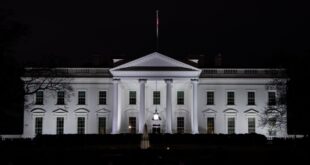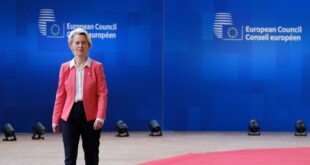Daesh has officially claimed responsibility for the attack in Karak, 127 km south of Amman, killing 14 of the Jordanian security forces in addition to some civilians who were nearby the site of the incident. The four Daesh members who stormed the governorate with their machine guns and grenades were also killed.
The 18 December 2016 attack was not the first terrorist attack this year. There have been three other attacks: in Irbid, Baqa’a Refugee Camp and Al Ruqban which led to the death of a number of Jordanian security forces. However, the question that arises is why now and why Jordan?
Back to June 6 when 5 General Intelligence Personnel were killed in an assault at their complex in Al Baqa’a Cap, twelve miles north of Amman. The incident was Jordan’s largest terrorist attack in more than a decade. With its unabashedly pro-west, pro-peace orientation, Jordan has long been a target of Islamist militants, but the Daesh constitutes an especially determined threat. Five years into the war in Syria, it increasingly appears that this terrorist faction has tried to make up for its military losses in Iraq, Syria and Libya by having some terrorist activities in Jordan to undermine Jordan’s economy which heavily depends on tourism nowadays as the Kingdom has become a preferred destination for many western tourists.
According to security sources, the attack began when a police patrol received reports of a fire in the village of Qatraneh, about 32km (20 miles) east of Karak. Officers who responded came under fire from inside the house. Two were wounded before the assailants fled in a car towards Karak Castle.
In spite of conflicting information about the incident or the background of the perpetrators, two of them have a Bachelor’s Degree in Law and in Business Administration and they have Islamic background in their family. The primary readings reveal that a cell of up to 10 terrorists was active and they were preparing 10 suicide bombs in addition to improvised explosive devices (IEDs) at a rented safe-house in Qatraneh when a civilian passing by had managed to smell gun powder out of the flat. He called the police who rushed to the scene.
The police knocked at flat’s door. Then one of the suspects opened the door and told the police that there were women inside so that he cannot let them in. Then, they started shooting at the police using machineguns. After killing the security men, they managed to take the car of the person who informed the police about the flat. Another vehicle was waiting for them in Karak from where they went to Karak Castle. Then, the major incident and the heavy death toll took place as terrorists were having the intention to detain tourists, before being killed.
Why Karak?
The terrorists targeted Karak because it is a Christian base, in fact they have a stronghold in Karak and they were planning to celebrate Christmas and the New Year’s Eve there. The second reason is that terrorists’ wanted to create a state of chaos among Jordanian tribes, causing rift and conflict among them as they are the backbone of the ruling Royal Hashemite Family.
Nowadays, it is very hard to find a political figure or an analyst who is upbeat about the repercussions of such attacks on the Jordanian economy. Among conversations in Jordanian political salons are concerns and apprehension about issue of tourism in the aftermath of the terrorist incident.
Jordan, as a haven of stability in the middle of a turbulent region, has managed to survive the so-called Arab Spring and has managed to abort majority of terrorist attempts on its territory. However, Jordan has been suffering from high debts which amounted last year to US$35 billion which costs the country about 2 billion to service annually. The total debt is almost 94% of its GDP. This year, the slated budget deficit is US$1.2 billion. The number of tourists by end of November 2016 was about 5.6 million.
The direct contribution of tourism to GDP was US$2.5 billion (6.5% of total GDP) in 2015, and is forecast to rise by 5.5% per year from 2015-2025, to US$4 billion (6.9% of total GDP) in 2025.
Shehab Al Makahleh
Source: Rusis World
*Emphasis added by Geostrategic Media editorial team.
 Geostrategic Media Political Commentary, Analysis, Security, Defense
Geostrategic Media Political Commentary, Analysis, Security, Defense




